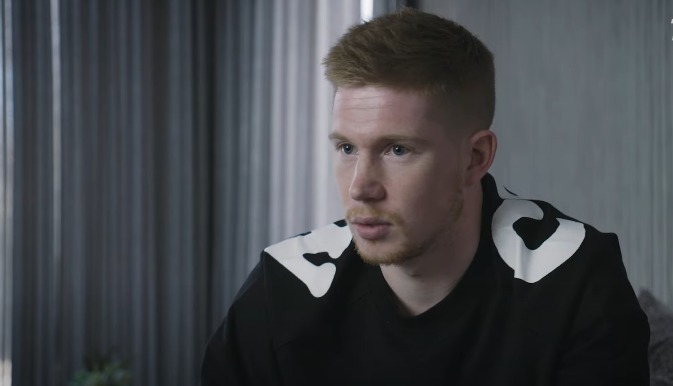Kevin De Bruyne’s wealth is a carefully planned legacy rather than merely a bank statement. He has developed into one of football’s most financially strategic players over the course of ten years of spectacular passes and astute judgment. Depending on the valuation source, his estimated net worth by 2025 ranges from $100 million to $130 million. That number is not just remarkable; it is the outcome of careful career planning.
Many athletes experience the highs and lows of temporary stardom, but De Bruyne has continuously been creating something more durable. In addition to changing midfield playbooks since joining Manchester City in 2015, he has also revolutionized how players use their commercial image. He currently makes an incredible £1 million a week, which is commensurate with his influence and market power.
He has established himself as a person who connects professional sports with business legitimacy by collaborating with companies like Nike, Therabody, and Orange Belgium. According to Forbes, he makes $35 million a year from football and an additional $4 million from endorsements. This dual source of income is remarkably stable and diversified.
| Category | Details |
|---|---|
| Full Name | Kevin De Bruyne |
| Date of Birth | 28 June 1991 |
| Place of Birth | Drongen, Belgium |
| Height | 1.81 m (5 ft 11 in) |
| Position | Midfielder |
| Current Club | Manchester City (until 2025) |
| Weekly Salary | £1 million |
| Estimated Net Worth (2025) | $130 million |
| Notable Achievements | UEFA Champions League, 6 Premier League titles |
| Spouse | Michele Lacroix |
| Children | 3 |
| Endorsements | Nike, Therabody, Orange Belgium |
| Reference | Wikipedia |
De Bruyne’s path has been characterized by discretion and discipline rather than chasing flashy headlines. His decisions mirror those of seasoned investors, both on and off the field. He has recently demonstrated an increasing interest in start-ups and eco-friendly business models, comparing himself to trailblazers like LeBron James who have made the successful transition from athletics to sustainable entrepreneurship.

De Bruyne created momentum at Manchester City in addition to winning trophies. He developed into a creative conduit under Guardiola’s complex scheme, weaving passes that sliced defenses like exquisite calligraphy on grass. He leaves behind a club that will always be influenced by his tempo and temperament after winning six league titles and a Champions League medal.
For background, many questioned the reasoning behind City’s £54 million purchase of him from Wolfsburg in 2015. That deal now appears to be a brilliant move. His technical skill and brand equity have significantly increased, making him a player who is just as powerful in business boardrooms as he is in the final thirds.
De Bruyne provides a welcome diversion from the typical celebrity playbook in his private life. A contemporary romance that lends authenticity to an otherwise high-performance lifestyle, he met his wife, Michele Lacroix, on Twitter. He creates an image that feels genuine rather than staged, despite having three kids and a rather private home life. This relatability makes the bond stronger for fans.
In contrast to some of his peers who display extravagant lifestyles, De Bruyne’s financial practices point to long-term planning. He doesn’t indulge in tabloid-style excess, but he does own luxury cars and real estate in Belgium and the UK. Every purchase seems carefully thought out and part of a larger philosophy that views wealth as a tool rather than an identity.
De Bruyne has adjusted to the significant changes in the football industry’s economic landscape over the last ten years. Today’s top players are creating strong financial ecosystems, whereas previous legends relied largely on match-day bonuses. This development has been mirrored in De Bruyne’s career, which has focused on increasing leverage while reducing noise.
His 2025 departure from Manchester City represents a change rather than an end. The next stage appears set to increase rather than decrease his impact, regardless of whether he decides to play in the Saudi Pro League, the MLS or pursue a more entrepreneurial route. He has established himself as a legacy player and a progressive professional through strategic moves and a strikingly consistent public persona.
De Bruyne is a sustainability masterclass for younger players, not just a benchmark in skill. The generation he influenced is now emerging, with many people imitating not only his playing style but also his approach to career planning, from Charles De Ketelaere to Youri Tielemans.
Few athletes are able to do what De Bruyne has done by fusing long-term objectives with immediate genius: he has made resilience relevant. Not only is his net worth substantial, but it was also wisely acquired. Furthermore, his model appears to be especially predictive as new markets open, sponsorship trends change, and player autonomy increases.
